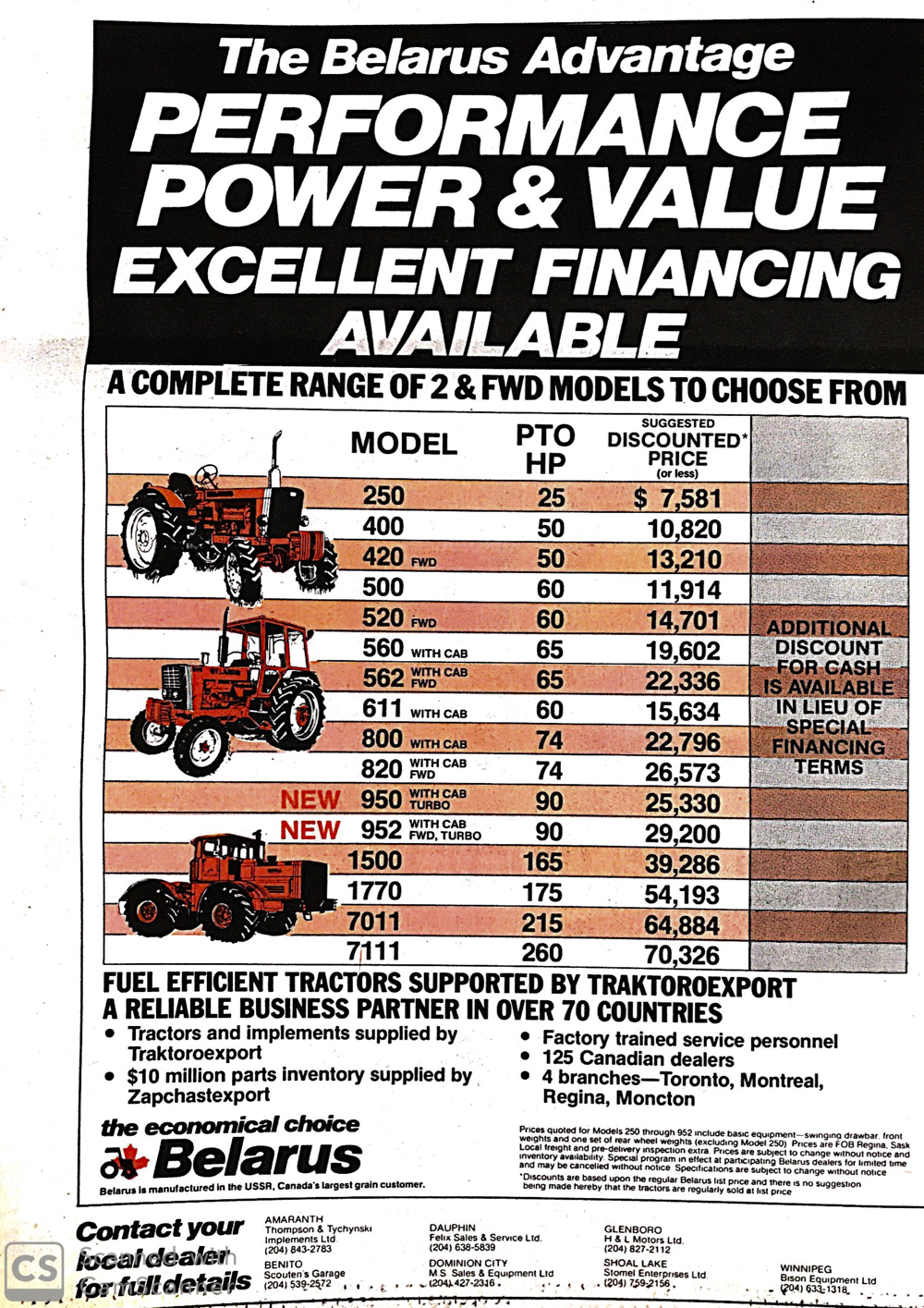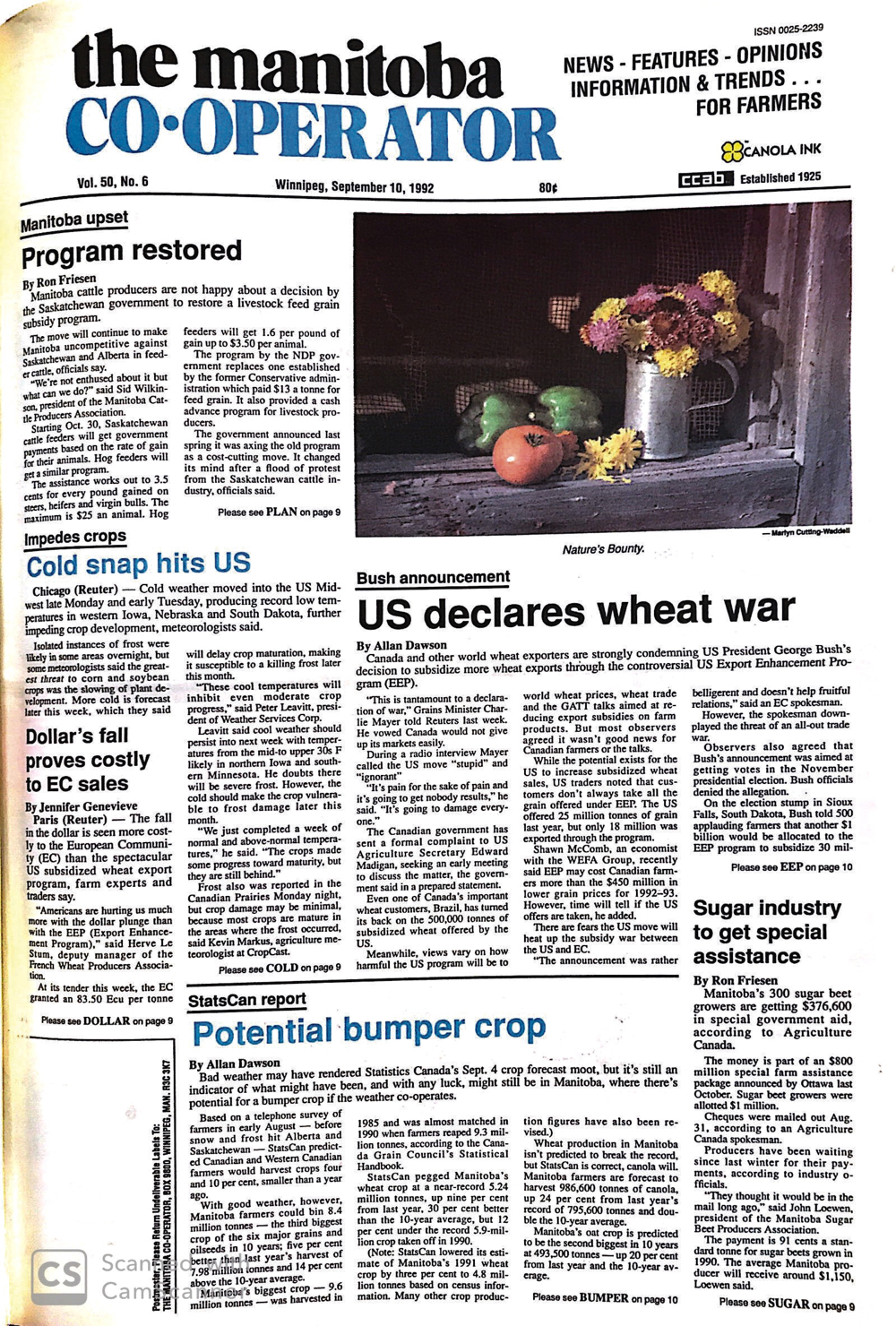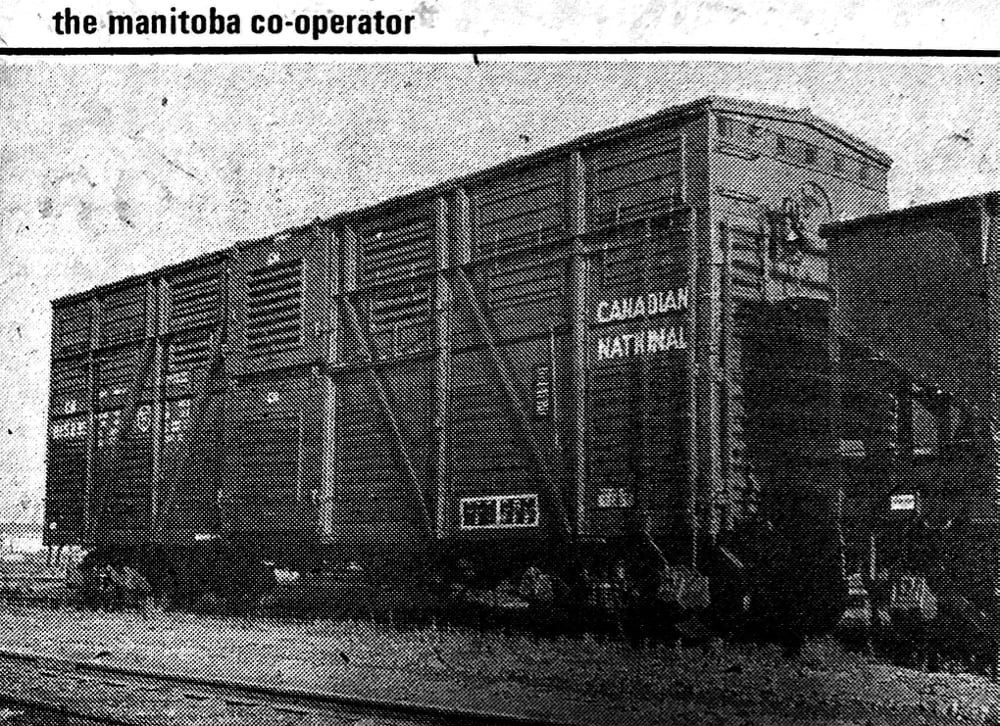Canada-U.S. trade was also in the news in October 1987 and stories in our Oct. 8 issue analyzed the effect of the newly signed Canada-U.S. Trade Agreement (CUSTA) on agricultural commodities. For grains, Canada would give up the wheat board’s import controls, which would be lifted on oats and barley as early as 1989. The U.S. would phase out tariffs on oilseeds and special crops over 10 years — on peas, beans and lentils they ranged from $22 to $88 per tonne.
Hog and cattle producers enthusiastically endorsed the agreement — the cattle market between the two countries had been effectively open for some time but hog producers had been hit by a series of import tariffs, including a countervailing duty of 4.39 cents a pound two years earlier. Supply management representatives generally welcomed the agreement, which did not provide for significantly increased import access.
Read Also

CUSMA access key among other trade noise: Seeds Canada panel
Seeds Canada conference panelists say Canada needs to stay focused and wait as U.S. trade and tariff chaos develops, and a Canada-U.S.-Mexico Agreement review looms
However, farmers were not generally pleased with a proposal by Finance Minister Michael Wilson that they file their 1988 income taxes on a “modified accrual” accounting basis. In a presentation to the House of Commons Finance Committee, Keystone Agricultural Producers said the system would force farmers to pay upfront taxes on unsold commodities, and force most to pay additional costs for the services of a professional accountant.
At a meeting of the International Federation of Agricultural Producers (IFAP) in Geneva, representatives discussed the problems of excess world grain production. Their statement said the critical farm income problem “requires that urgent co-ordinated measures be taken by governments to manage and reduce stocks and restore balance and stability to international markets.”



















